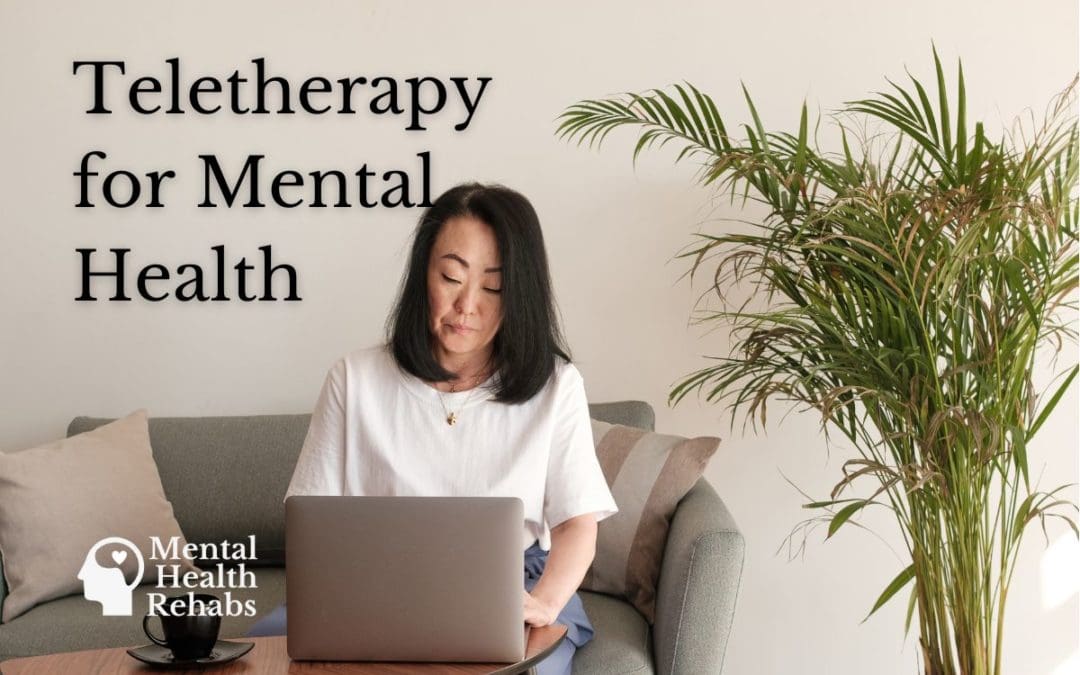The COVID-19 pandemic (and ensuing quarantine) saw many of the activities traditionally conducted in-person–like grocery shopping, happy hours, and first dates–go digital. Other activities which were already making that switch like telehealth consultations and remote work, saw a huge jump in interest.
The results of this digital transition have been mixed. There’s the undeniable convenience of not having to travel somewhere or even put on real pants, but there’s a definite potential tradeoff. Talking to people through screens can leave us feeling less connected to those we interact with, and those moments may seem less meaningful or even “real” –not to mention the very real phenomenon of “Zoom fatigue”.
So where does this leave teletherapy for mental health? Is it possible that something as intimate as finding a therapist can be done without ever talking to them in person? Is teletherapy as effective as in-person therapy?
Pros and Cons of Teletherapy
Online therapy is just as legitimate and traditional as in-person therapy: patients are connected with licensed mental health professionals and it’s covered by many insurance plans. It’s simply mental health care in different forms, which can include videoconferencing, texting, and mobile apps.
Research suggests that teletherapy can be an effective form of treatment for a variety of mental health conditions. However, like all forms of treatment, it has its benefits but also some limitations as well.
Cons of Teletherapy
- Access to technology required: Teletherapy requires access to a stable internet connection and a device–such as a computer or smartphone, which may not be available to everyone–and also requires a certain level of technological know-how which could also be a barrier to treatment. Additionally, technical problems, such as a poor internet connection or difficulty with video conferencing software, can disrupt or even prevent teletherapy sessions.
- Limited nonverbal communication: Nonverbal cues, such as facial expressions and body language, can be an important part of therapy for both parties. A therapist may notice their patient wringing their hands or bouncing their knee when they speak, and recognize when a particular topic is distressing. A patient might subconsciously read their therapists’ calm body language and establish a feeling of trust. Virtual therapy can make these sometimes unconscious visual cues harder, or even impossible, to see.
- Legal and ethical considerations: Teletherapy raises a number of legal and ethical issues, such as the confidentiality of electronic communications and the need to obtain informed consent from patients.
- Limited efficacy for certain conditions: Teletherapy may not be suitable for treating everyone. Individuals with severe mental health crises such as schizophrenia or other dysregulating conditions, who have experienced trauma, or have a difficult time focusing (such as a person experiencing a manic episode or hypervigilant ADHD) will likely need more hands-on support.
Pros of Teletherapy
- Convenience: Teletherapy allows patients to receive treatment from the comfort of their own home or any location with a stable internet connection. This can be especially useful for people who live in rural or underserved areas, have mobility limitations, or have busy schedules that would make it difficult for in-person therapy sessions. This can also make teletherapy for mental health a more economical option, saving money on transportation, missed wages (if taking time off work), or childcare.
- Accessibility: Teletherapy can make mental health care more accessible to people who might otherwise face physical, financial, geographical, or logistical barriers. Additionally, digital forms of therapy may be less expensive, making mental health care more affordable thereby expanding access to mental health care.
- Privacy: Some people may feel more comfortable discussing sensitive or personal issues in the privacy of their own home, rather than in an office setting. Further, this overcomes barriers people might have feelings of shame or embarrassment at being seen at a therapist’s office (There is absolutely nothing to be ashamed of for seeking mental health care. However, we recognize that among some communities, the concept may still carry old stigmas).
- Flexibility: Teletherapy sessions can be scheduled at a time that is convenient for the patient, including evenings or weekends without needing to account for travel time.
- Efficacy: A number of studies have found that teletherapy is as effective as in-person therapy for a range of mental health conditions, including depression, anxiety, and post-traumatic stress disorder (PTSD).
Final Verdict: Yes, Teletherapy Works for Mental Health
Teletherapy is not a one-size-fits-all solution, but for the vast majority of mental health care needs, experts agree it’s the future of mental health care. Whether you prefer to speak with a mental health professional virtually or in-person, make sure you know which type of professional you should speak to.

